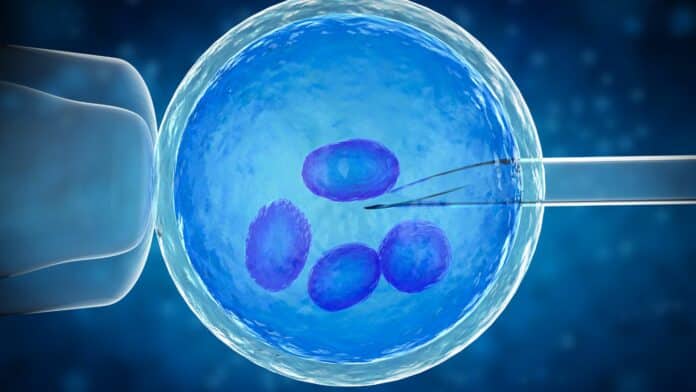Increasingly, couples struggling with fertility turn to assisted reproductive techniques to have children, including in vitro fertilization (IVF). Despite the demonstrated influence of preconception male health and lifestyle choices on offspring development, studies examining IVF success rates and child health outcomes remain exclusively focused on maternal factors.
The recently released study at Texas A&M University is a part of Golding’s ongoing investigation of how male drinking before conception affects the emergence of alcohol-related diseases and birth defects. This study emphasizes how critical it is to underline the dangers of alcohol usage for both parents, not just the woman, when discussing fertility and pregnancies.
The new study uses a mouse model to determine the effects of a potential father’s drinking on IVF pregnancy outcomes. The model includes three groups: a control group representing men who don’t drink, a group representing men who regularly use alcohol up to the legal limit, and a group representing men who regularly drink alcohol at one and a half times the legal limit.
The study’s findings showed that the likelihood of a successful IVF pregnancy decreased with the alcohol a man drank before donating sperm.
Dr. Michael Golding’s laboratory at Texas A&M University said, “Seeing the negative effects in both the legal limit group and the group drinking at one and a half times the legal limit revealed that as alcohol dose increases, things get worse. That surprised me. I didn’t think that it would be that cut and dry. That emphasized that even very modest levels of exposure were breaking through and impacting conception, implantation, and overall IVF pregnancy success rates.”
Alexis Roach, a Ph.D. candidate helping conduct research in Goldings lab, served as the first author of the recently published IVF research paper. She said their findings and other research conducted in Golding’s laboratory challenge the primarily maternal-focused narrative of previous IVF research. She also said it’s essential to make the findings of this research accessible to the public.
“The most important aspect of this research is that it makes it clear that everybody plays a role in achieving successful pregnancy outcomes, even though the general assumption is that it’s just women. The most important thing to take away from this is that if you’re a male considering having a family, abstain from alcohol until your wife gets pregnant.”
The study raised more queries about paternal drinking and prenatal development. These issues and the paternal components of foetal alcohol spectrum disorders, a group of ailments that can happen when a person is exposed to alcohol before birth, are still being studied by Golding’s lab. By checking the father’s role in it, his work seeks to provide a comprehensive look at understanding foetal growth and pregnancy.
Journal Reference:
- Alexis N Roach et al. Preconception Paternal Alcohol Exposure Decreases IVF Embryo Survival and Pregnancy Success Rates in a Mouse Model. Molecular Human Reproduction, gaad002, DOI: 10.1093/molehr/gaad002
